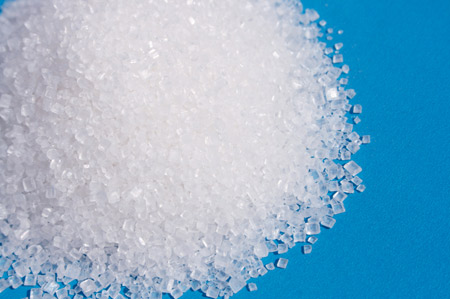Sugar futures jump after Brazil renews fuel tax
Category: Sugar
 (Agrimoney) – Sugar futures jumped to their highest since November, thanks to a boost to prospects for values of ethanol – the sweetener’s rival for cane – stemming from the reintroduction of a tax on gasoline.
(Agrimoney) – Sugar futures jumped to their highest since November, thanks to a boost to prospects for values of ethanol – the sweetener’s rival for cane – stemming from the reintroduction of a tax on gasoline.
Raw sugar futures for March delivery hit 15.82 cents a pound in lunchtime deals in New York, up 3.2%, after the Brazil government’s late on Monday to restore the so-called Cide fuel tax, which adds R$0.22 per litre to the price gasoline and R$0.25 per litre to diesel.
The extra cost of these conventional fuels increases the competitiveness of ethanol as an alternative.
And, with Brazil making its ethanol chiefly from sugar cane, higher prices of the biofuel mean higher values of sugar too, to ensure the sweetener its share of the cane crop.
Petrobras surprise
In fact, the reintroduction of the tax – as part of a R$20.6bn ($7.7bn) Brazilian government drive to raise its revenues and pay down debt – had been anticipated by the market.
“That much had been expected,” said Robin Shaw at Marex Spectron, the London-based broker.
What had not been forecast was a decision by Petrobras, the state-run Brazilian oil company, to pass on the tax to customers rather than to absorb it.
“That means you are looking at an increase of 7-8% in the gasoline price, rather than the 5% or so that would have happened if Petrobras had swallowed the tax,” Mr Shaw said.
‘Step in the right direction’
While “not a game changer” for sugar, the Petrobras move had improved the fundamentals of the sweetener in Brazil, Mr Shaw said.
On his calculations, the sugar price at which making the sweetener is as profitable to make as ethanol – so-called ethanol parity – has risen from some 14.5 cents a pound a few days ago to some 15.2 cents a pound.
And Elizabeth Farina, the president of Brazilian cane industry group Unica, said that the move was a “step in the right direction towards valuing renewable fuels”, which have until recently fallen foul of moves to keep Brazilian gasoline prices artificially low.
While quelling inflation, this regime has curbed ethanol values and returns, and so undermined investment in the cane sector.
‘Not salvation’
Nonetheless, influential crop analyst Michael Cordonnier said that the Cide move was “not the salvation of the ethanol sector in Brazil”, which has more deep-seated problems.
Even at Tuesday’s prices, sugar values are believed to be below typical sugar production costs.
“The regime is more favourable than it was. But Cide is not going to solve the problem on its own.”




